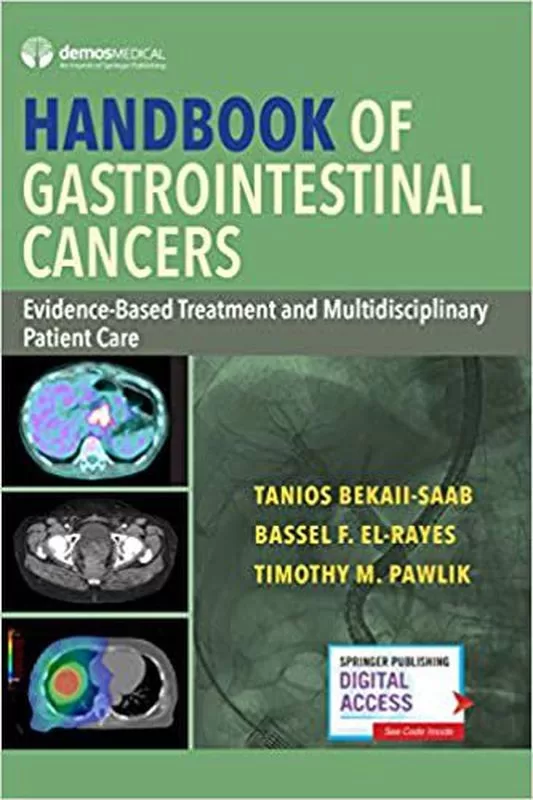Multidisciplinary care for GI cancers is a crucial approach that significantly enhances patient outcomes in the treatment of gastrointestinal malignancies. This methodology combines the expertise of various specialists, creating a robust multidisciplinary cancer team dedicated to addressing the unique challenges associated with GI cancer treatment. For instance, effective rectal cancer management often requires seamless collaboration among oncologists, radiologists, and surgeons to devise an integrated treatment plan. Similarly, pancreatic cancer collaboration extends this idea, where coordinated efforts result in holistic care that considers the patient’s needs throughout their journey. Ultimately, comprehensive stomach cancer care hinges on this collaborative framework, ensuring that all aspects of a patient’s treatment are thoroughly addressed for optimal recovery.
The management of gastrointestinal tumors necessitates a cooperative approach that encompasses various disciplines, often referred to as a multidisciplinary framework. This collaborative strategy involves integrating the skills of healthcare professionals, including oncologists, surgeons, and support staff, to ensure a well-rounded treatment plan for patients facing intestinal cancers. In working together, this specialized team facilitates timely decision-making and personalized care, which are vital in conditions such as rectal carcinoma and pancreatic malignancies. Moreover, such teamwork emphasizes the importance of effective communication and patient support, addressing all facets of care, including nutrition and emotional well-being. By harnessing the strengths of diverse medical fields, practitioners can deliver exceptional outcomes for patients undergoing treatment for GI-related cancers.
The Importance of Multidisciplinary Care in GI Cancer Treatment
Multidisciplinary care is fundamentally essential in the treatment of gastrointestinal (GI) cancers, as it brings together a diverse range of medical expertise and skills. This collaborative approach ensures that each patient receives comprehensive treatment tailored to their specific needs. Within a multidisciplinary team, oncologists, radiologists, surgeons, dietitians, and nurses integrate their knowledge to formulate the most effective treatment protocols. The synergy among these professionals enhances patient outcomes significantly and supports patients through each stage of their cancer journey.
For instance, the management of rectal cancer clearly showcases the effectiveness of a multidisciplinary strategy. The integrated treatment plan often involves chemotherapy, radiation therapy, and surgical intervention, necessitating close collaboration between various specialists. Radiation oncologists and GI surgeons must coordinate their efforts to assess staging and patient response, ensuring that every aspect of care is aligned. Such collective expertise not only optimizes treatment success but also improves the quality of life for patients throughout their recovery.
Frequently Asked Questions
How does multidisciplinary care improve GI cancer treatment outcomes?
Multidisciplinary care enhances GI cancer treatment outcomes by integrating the expertise of various specialists, including oncologists, surgeons, radiologists, dietitians, and nurses. This collaboration allows for personalized treatment plans that effectively address the complexities of GI cancers, ensuring patients receive comprehensive care tailored to their specific needs.
What role does a multidisciplinary cancer team play in rectal cancer management?
In rectal cancer management, a multidisciplinary cancer team plays a crucial role by collaborating on treatment decisions that often involve surgery, chemotherapy, and radiation. This team approach enables specialists like GI doctors and radiologists to guide the staging and planning of treatment, leading to better patient outcomes.
Why is multidisciplinary collaboration essential in pancreatic cancer care?
Multidisciplinary collaboration is essential in pancreatic cancer care because this complex disease requires input from various specialists to create an effective treatment strategy. By working together, oncologists, surgeons, and support staff can ensure all aspects of a patient’s health are considered, ultimately improving treatment effectiveness and patient quality of life.
What is the significance of dietitians and nurses in multidisciplinary care for GI cancers?
Dietitians and nurses are significant in multidisciplinary care for GI cancers, as they provide specialized support that complements medical interventions. Dietitians help manage nutritional needs, which can influence treatment tolerance, while nurses play a vital role in coordinating care, monitoring patient progress, and educating patients about their treatment plans.
How do multidisciplinary teams address the challenges of stomach cancer care?
Multidisciplinary teams address the challenges of stomach cancer care by fostering communication among various specialists, including oncologists, surgeons, and nutritionists. This collaborative approach allows for comprehensive management of the disease, ensuring that all aspects of treatment—surgical options, chemotherapy, and nutritional support—are effectively integrated for optimal patient care.
| Aspect | Details |
|---|---|
| Multidisciplinary Collaboration | Vital for effective management of GI cancers, combining expertise from various healthcare professionals. |
| Key Role of Team Members | Involves GI doctors, radiologists, dietitians, nurses, and pharmacists whose collaborative efforts improve patient care. |
| Treatment Example: Rectal Cancer | Requires chemotherapy, radiation, and surgery with integrated decision-making among specialists. |
| Process of Care | Patients are transitioned among various teams; this requires ongoing support and communication. |
| Goals for Patients | Aim to cure patients with early-stage cancers while maintaining a patient-centered approach. |
Summary
Multidisciplinary care for GI cancers is incredibly important to ensure comprehensive and effective treatment. It emphasizes the collaboration among various specialists—ranging from oncologists to dietitians—who each bring their unique expertise to the forefront of patient care. With a holistic treatment strategy, particularly in conditions like rectal cancer, teams are able to make informed decisions that consider all aspects of a patient’s health. This collaborative approach not only enhances treatment efficacy but also supports patient well-being throughout the care process.
The content provided on this blog (e.g., symptom descriptions, health tips, or general advice) is for informational purposes only and is not a substitute for professional medical advice, diagnosis, or treatment. Always seek the guidance of your physician or other qualified healthcare provider with any questions you may have regarding a medical condition. Never disregard professional medical advice or delay seeking it because of something you have read on this website. If you believe you may have a medical emergency, call your doctor or emergency services immediately. Reliance on any information provided by this blog is solely at your own risk.
